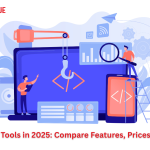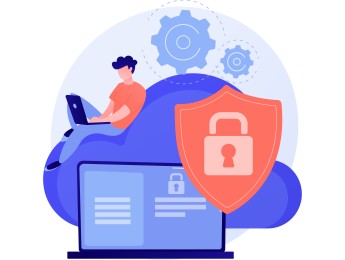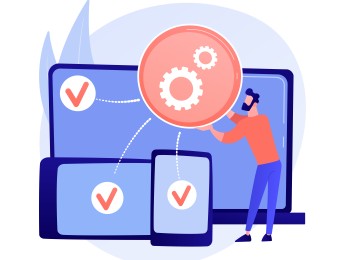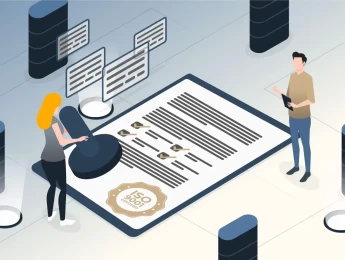In a highly dynamic digital business environment, IT Service Management (ITSM) plays a crucial role in ensuring consistent, reliable, and value-driven technology services. ITIL 4, the latest evolution of the globally recognised ITSM framework, offers modern practices that align IT services with rapidly changing business needs through flexibility, collaboration, and value co-creation.
This course offers a practical and hands-on approach to applying ITIL 4 concepts. Participants will learn how to design, operate, and improve IT services while navigating real-world challenges such as rapid change, cloud adoption, automation, and customer expectations. The course focuses on applying ITIL 4 principles in daily service management operations, using real-life scenarios and actionable frameworks.
By the end of this course, participants will be able to:
- Understand the ITIL 4 framework, principles, and its application in ITSM.
- Apply key ITIL 4 service management practices to real-world IT operations.
- Design service value chains that enhance business outcomes.
- Manage incidents, changes, problems, and service requests effectively.
- Use continual improvement models to drive operational excellence.
- Understand the role of automation, AI, and digital transformation within ITIL 4.
This course is ideal for:
- IT service managers and team leaders.
- ITIL practitioners preparing for certification.
- Helpdesk and service desk professionals.
- IT operations and support staff.
- IT consultants and process improvement leaders.
- IT governance, compliance, and risk professionals.
- Digital transformation project managers.
The course blends expert-led instruction with interactive workshops, practical exercises, real-world case studies, group activities, and service simulation labs. Emphasis is placed on applying ITIL 4 principles to everyday ITSM challenges, ensuring practical readiness for immediate application.
Day 5 of each course is reserved for a Q&A session, which may occur off-site. For 10-day courses, this also applies to day 10
Section 1: Introduction to ITIL 4 and Service Management Fundamentals
- The evolution of ITIL: from processes to value systems.
- Key concepts of ITSM: value, outcomes, risks, and costs.
- ITIL 4 Service Value System (SVS) and Service Value Chain (SVC).
- The guiding principles of ITIL 4:
- Focus on value.
- Start where you are.
- Progress iteratively with feedback.
- Collaborate and promote visibility.
- Think and work holistically.
- Keep it simple and practical.
- Optimise and automate.
Section 2: Core ITIL 4 Practices and Application
- Overview of 34 ITIL 4 management practices.
- Service request management: handling user requests effectively.
- Incident management: restoring service quickly.
- Problem management: addressing root causes.
- Change enablement: balancing speed with risk control.
- Knowledge management: capturing and sharing organisational knowledge.
- Continual improvement: embedding improvement cycles into daily work.
Section 3: Service Design, Delivery, and Operation
- Designing services aligned with business needs.
- Defining service level agreements (SLAs) and key performance indicators (KPIs).
- Service catalog management: defining service offerings.
- Capacity and performance management.
- Availability and continuity planning.
- Supplier and third-party management in service delivery.
Section 4: Governance, Automation, and Digital Transformation
- IT governance within the ITIL 4 framework.
- The role of automation, AI, and self-service portals in modern ITSM.
- Robotic Process Automation (RPA) and AI-powered ticket management.
- Cloud service management within ITIL 4.
- Data-driven service management using monitoring and analytics tools.
Section 5: Real-World ITSM Scenarios and Continual Improvement
- Case studies of ITIL 4 implementation in enterprise environments.
- Managing complex hybrid IT environments (on-prem, cloud, SaaS).
- ITIL 4 High-Velocity IT: rapid delivery in digital organisations.
- Designing practical Continual Improvement Models (CIM).
- Measuring success: service reporting and value stream mapping.
- Building an improvement culture within IT service teams.
Upon successful completion of this training course, delegates will be awarded a Holistique Training Certificate of Completion. For those who attend and complete the online training course, a Holistique Training e-Certificate will be provided.
Holistique Training Certificates are accredited by the British Accreditation Council (BAC) and The CPD Certification Service (CPD), and are certified under ISO 9001, ISO 21001, and ISO 29993 standards.
CPD credits for this course are granted by our Certificates and will be reflected on the Holistique Training Certificate of Completion. In accordance with the standards of The CPD Certification Service, one CPD credit is awarded per hour of course attendance. A maximum of 50 CPD credits can be claimed for any single course we currently offer.
- Course Code PI1 - 140
- Course Format Classroom, Online,
- Duration 5 days












